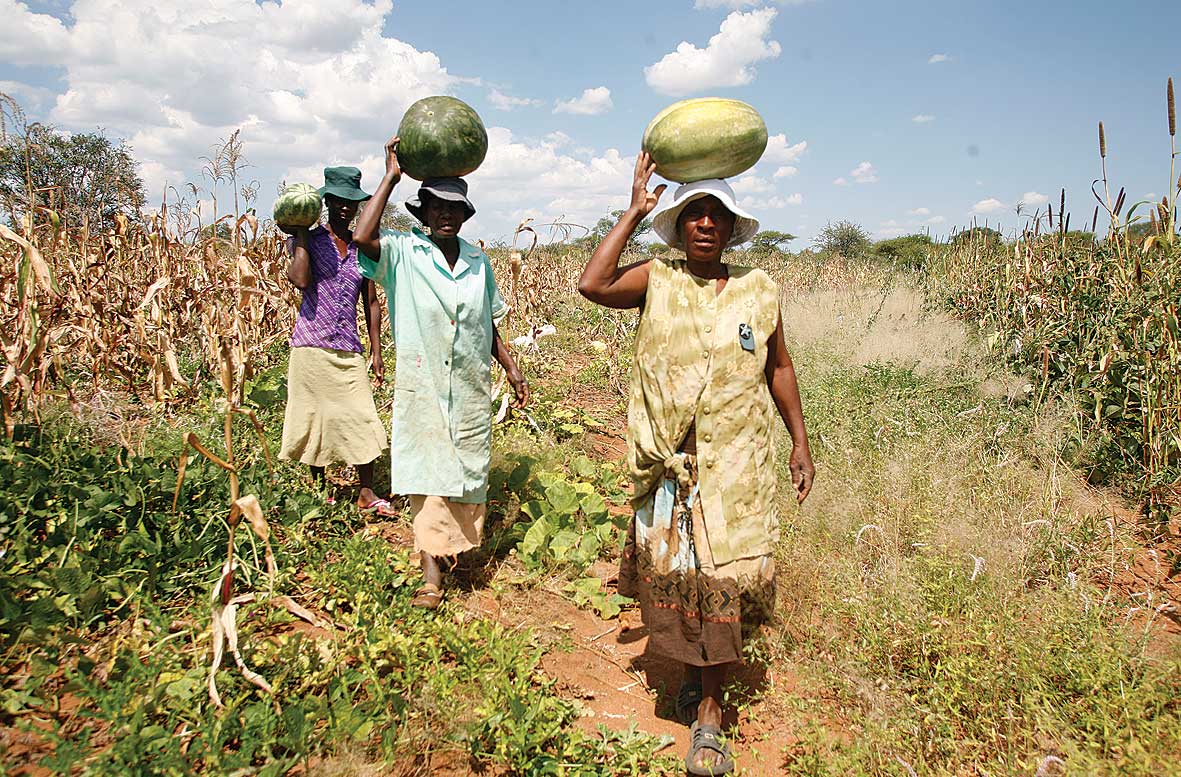
Nomathemba Hairwadzi (59) lost her husband Ephraim to cancer in 2007.
By Veneranda Langa
But, what was really touching about Hairwadzi’s story was not that she was now a widow — it was the manner in which she lost her farm at a time when her husband was terminally ill.
While she was taking care of her bedridden husband, a neighbour schemed to take over their farm.
On Tuesday, Hairwadzi painfully narrated her story in Parliament before members of the Parliamentary Portfolio Committee on Lands, Agriculture and Irrigation Development chaired by Christopher Chitindi.
She had appeared before the committee together with her colleagues from the Women’s Alliance of Business Associations of Zimbabwe (Wabaz) and accompanied by their mentors from the Southern Africa Parliamentary Support Trust (Sapst).
“We used to own a farm before my husband passed away in 2007. What happened was that in 2006 my husband got involved in a car accident and while in hospital he was also diagnosed with cancer,” Hairwadzi said.
“Our farm was situated in Mvuma and since my husband was no longer well and was bedridden, I was spending most of the time taking care of him. our farming activities were disturbed and people started plotting to take over the farm.”
- Chamisa under fire over US$120K donation
- Mavhunga puts DeMbare into Chibuku quarterfinals
- Pension funds bet on Cabora Bassa oilfields
- Councils defy govt fire tender directive
Keep Reading
Hairwadzi said eventually their land was taken away and to her dismay, she discovered that the person who took over the farm was her neighbour whom she preferred not to identify.
“I tried to regain my farm when my husband passed on in 2007, but all was in vain as I moved from office to office without getting help. At first, I was told that I was going to be offered another farm, but nothing of that sort happened.
“Eventually, I gave up and decided to relocate to Zaka where I am farming on my father-in-law’s land, which is a very small portion.” She said luckily, her four children were now grown up and she did not have expenses such as school fees, but as a woman she was also interested in commercial farming.
Wabaz chairperson Judith Mhizha said there were many cases of women like Hairwadzi who lost land after losing their husbands.
She said there were negative cultural beliefs by some communities where it was believed that women cannot own land. Wabaz constitutes of 16 000 individuals from 21 sectors of the economy such as agriculture and mining.
“According to a 2012 Feed the Future Gender analysis, although women formed the majority of the agricultural workforce, it was more difficult for women to access key productive resources and assets and therefore economically benefit from their labour,” Mhizha said.
“Some of our members who had been allocated pieces of land were later forcefully evicted from the estates. As an organisation, we have also noted with concern the cultural beliefs in some areas that prohibit women from owning pieces of land. The chiefs in these areas are reluctant to allocate land to women on the grounds of traditional beliefs. These traditions have also been responsible for the unfair distribution of farming equipment; hence men constitute the majority of the beneficiaries of the farm mechanisation programme in these areas.”
Some of the challenges that women farmers said they were experiencing included lack of access to irrigation equipment and boreholes, failure to access loans at banks due to prohibitive interest rates and lack of collateral, as well as lack of access to markets to sell their produce.
Zimbabwe Women Farmers’ Trust’s Depina Nkomo suggested: “Most properties are registered in husbands’ names, making it impossible for the wives to access loans without the involvement of their husbands. We urge government to facilitate a loan scheme that will disburse loans on the grounds of sustainability of the project proposal, rather than on collateral.”
In the mining industry, women said they faced a myriad of problems. Women in mining also appeared before the Parliamentary Portfolio Committee on Mines and Mining Development.
Mhizha also said women were still grossly underrepresented in Zimbabwe’s mainstream mining activities.
“According to a presentation from the Permanent Secretary of the Ministry of Women Affairs, Gender and Community Development at a mining workshop in Bulawayo in 2014, only 15% of the 50 000 artisanal gold miners in the small-scale mining sector are women, while 80% of small-scale gold and gemstone claims belong to men,” she said.
“About 95% of women in gold mining are in the informal sector, while 55% of illegal gold planners are women. These disparities call for concerted efforts to be directed towards creating a conducive environment that encourages more women to venture into the formalised mining sector.”
The women said mining in general was capital intensive and required significant investment.
“Government should expedite the release of the $100 million credit facility allocated to small-scale miners last year by Chinese company Xuzhou. The selection criteria should take into account previous gender imbalances and aim at correcting them,” Mhizha said.
They said mining legislation and policy must be revised to simplify some technical sections and to cover artisanal mining of which women constituted 30%, as well as small scale mining.
Exorbitant regulatory taxes, mining fees, levies and royalties were also said to hinder participation of women in mining, including policy inconsistency and unpredictability, which created a sense of insecurity in the mining sector.
Dilapidated infrastructure, poor roads and erratic electricity supplies were mentioned as hindering access to markets.
The women also said the police had been unresponsive in cases of invasions and human rights violations in the mining sector, adding that cultural beliefs that the mining sector was not a place for a women also made it difficult to get support from government arms.











